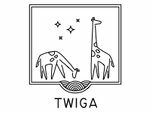Besides education and research, technology transfer is the third core task of Dutch universities. Constructive multi-party collaborations are an essential aspect to help accelerate innovations. The Innovation & Impact Centre (I&IC) of the Delft University of Technology (TU Delft) supports the transfer and application of knowledge for the benefit of the economy and society by creating collaborations with industry, governments and knowledge institutions. A challenging task, to say the least.
The broad role of I&IC in EU funded projects
Participation in EU funded projects is an efficient method for tackling global challenges by stimulating the technology transfer to society and bringing innovations closer to the market, where they can make impact.
However, coordinating an international project is not only about the research related tasks. Next to the legal aspects of signing contracts with the European Commission (EC) and the project partners or organisational and financial tasks, there are also other aspects to be considered, like open access, ethics, and data management. At TU Delft, the coordination of non-content and content parts has been split: the I&IC takes care of all legal, organisational, and financial tasks so that the researchers can focus on what they do best: figuring out the science.

The responsibilities of a non-content or administrative project manager is to coordinate the project activities efficiently, with respect to time, budget and quality. Moreover, a project manager is an intermediary for all communication between co-beneficiaries and the European Commission. A comprehensive role.
I&IC offers support with the following tasks:

Non-content coordination of TWIGA
The TWIGA H2020 project on ‘Transforming Water, weather, and climate information through In situ observations for Geo-services in Africa’ started in 2018 by signing a Grant Agreement with the European Commission and a Consortium Agreement between the project partners. To mark the beginning, a kick-off meeting was organised by the I&IC in Delft.
During the project several general assemblies, executive board and advisory board meetings took place in different locations in Europe and Africa. We coordinated two reporting periods, completed three amendments to the Grant Agreement, and monitored the budget and tasks’ timeline on a regular basis. Currently, the TWIGA project is in its final phase and so we are preparing for the final review. Although much has been achieved in the last four years, we are not there just yet. There are still things that need to be done in the upcoming few months in order to successfully complete the project.
The I&IC is organising the last consortium meetings in March and April and a final TWIGA conference, which will take place on 11-12 July in Delft with a possibility to connect online. Furthermore, we will coordinate and monitor the final reporting period, which consists of a technical and financial part (including an audit). This requires the involvement of all project partners.
A contemporary way to manage projects
Something that doesn’t necessarily come to mind with these types of projects is that managing a project is also managing the cooperation between individuals. Smooth communication between the partners and the EC Project Officer (PO) is crucial to assure successful completion. The I&IC acts as a link between the EC and the consortium but also between different colleagues at TU Delft. Therefore, during the last years, we made sure that all TWIGA partners were updated on the progress.
TWIGA lifecycle:

It is fair to say that nowadays project management is more extensive than it ever was. Besides the coordination tasks, like contract negotiations or taking care of finances and reporting, it also involves looking into ethical aspects, open access, and data management. At the end of the day, it saves the researcher loads of time, if someone else is dealing with these issues. Together we can assure a smooth completion of the project.
We would like to take this chance to thank all partners for their hard work, commitment and excellent collaboration in the last four years of TWIGA!
Written by:
Anna Gralka and Diana Keijzer
Innovation & Impact Centre – TU Delft

